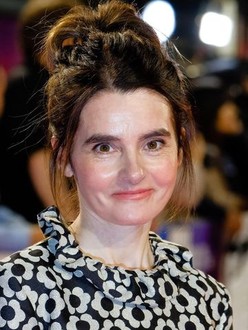spanning over three decades, she has captivated audiences with her unique charm, emotional depth, and distinctive voice. Known for her ability to embody complex characters, Henderson has worked with some of the most celebrated filmmakers and playwrights of her time. This article delves into her life, career, and contributions to the performing arts, showcasing why she is considered one of the most talented actresses of her generation.
Early Life and Education
Shirley Henderson was born on July 24, 1965, in Forres, Moray, Scotland. She grew up in a close-knit family, the youngest of three children. Her parents, both educators, fostered an environment that encouraged creativity and self-expression. From a young age, Henderson showed a keen interest in performing arts, participating in school plays and local theatre productions.
After completing her secondary education, she attended the Royal Scottish Academy of Music and Drama in Glasgow, where she honed her acting skills and developed her passion for theatre. It was during her time in drama school that she began to gain recognition for her talent, appearing in various stage productions and garnering praise for her performances.
Early Career
Henderson’s professional acting career began in the late 1980s. She made her television debut in the 1987 series The Big Man, followed by roles in British television productions such as The Good Sex Guide and The Crying Game (1992), which showcased her talent to a broader audience. However, it was her performance in Trainspotting (1996) that truly put her on the map.
In Trainspotting, directed by Danny Boyle, Henderson played the role of Diane, a young woman who becomes romantically involved with the protagonist, Mark Renton, portrayed by Ewan McGregor. Her portrayal of Diane was both tender and fierce, earning her critical acclaim and establishing her as a talented actress in the British film industry.
Breakthrough Roles
Following her breakthrough in Trainspotting, Henderson continued to take on diverse roles in film and television. In 1998, she starred in The Last Great Wilderness, a Scottish film that further showcased her ability to embody complex characters. Her portrayal of a young woman grappling with loss and identity was met with praise, solidifying her reputation as a skilled actress.
In 2001, Henderson took on the iconic role of Moaning Myrtle in the Harry Potter film series. Appearing in Harry Potter and the Chamber of Secrets and Harry Potter and the Goblet of Fire, she brought a hauntingly memorable quality to the character, a ghostly girl who haunts the Hogwarts bathrooms. Her performance resonated with audiences, and she became a beloved figure within the franchise, introducing her talents to a younger generation.
Theatre Work
While Henderson is well-known for her film roles, her passion for theatre has always remained a significant part of her career. She has performed in various stage productions, earning accolades for her performances. One of her notable theatre roles was in the Royal Court Theatre’s production of The Birthday Party in 2006, where she portrayed the character of Lulu. Her performance received rave reviews, demonstrating her ability to excel in the live theatre setting.
Henderson has also worked with the National Theatre of Scotland, participating in productions such as The Glass Menagerie and The Queen of the North. Her dedication to theatre not only highlights her versatility as an actress but also her commitment to the craft.
Later Career and Recent Projects
In the 2010s, Henderson continued to explore a range of roles in both film and television. She appeared in The Decoy Bride (2011), a romantic comedy where she played the lead role of a woman who pretends to be a bride to help a famous actress avoid the paparazzi. The film showcased her comedic timing and ability to navigate lighter material while still maintaining emotional depth.
In 2014, Henderson starred in God Help the Girl, a musical drama written and directed by Stuart Murdoch of the band Belle and Sebastian. Her role as Eve, a young woman with dreams of becoming a singer, allowed her to showcase her singing talent and further broaden her artistic repertoire.
Henderson’s television work during this period also flourished. She starred in the acclaimed series The Last Kingdom, where she played Aelswith, the formidable wife of King Alfred. Her performance added complexity to the character, showcasing her ability to portray strength and vulnerability.
Impact and Legacy
Shirley Henderson’s impact on the performing arts is undeniable. Her unique talent has transcended genres, and she has consistently brought depth and nuance to her roles. Henderson’s ability to connect with audiences through her performances has earned her a dedicated fan base and respect within the industry.
Her work has inspired many aspiring actors, particularly women in the arts, to embrace their individuality and pursue their passions fearlessly. Henderson’s commitment to diverse storytelling has also opened doors for other artists, highlighting the importance of representation in film and theatre.
Personal Life
Despite her success, Henderson has maintained a relatively private personal life. She has spoken in interviews about the challenges of balancing her career with personal commitments. She is known for her down-to-earth demeanor and sense of humor, traits that endear her to both fans and colleagues alike.
Henderson is an advocate for mental health awareness, often using her platform to speak about the importance of mental well-being in the arts. Her openness about her struggles and triumphs resonates with many, further cementing her status as a relatable and genuine figure in the industry.
Conclusion
Shirley Henderson is a remarkable actress whose contributions to film, television, and theatre have left a lasting impression on audiences and the arts community alike. Her ability to embody a wide range of characters, from the whimsical to the profound, demonstrates her exceptional talent and versatility.



